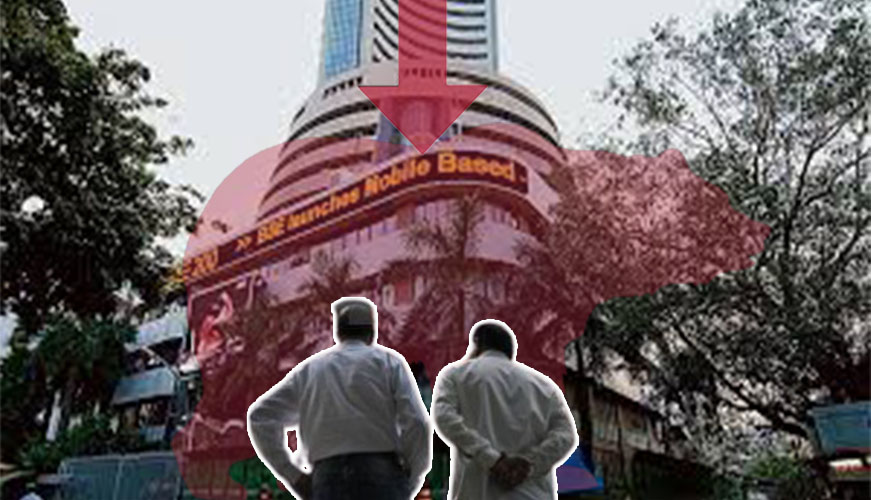
(Photo : BT Creative)
The Indian stock market ended in red.
The benchmark Indian stock market indices ended a volatile week on a negative note, with both the Sensex and Nifty struggling to recover from a bearish hold on Friday posting one of their worst weeks. Multiple factors fuelled a continued sell-off in the markets that wiped out over ₹17 lakh crore in investor wealth.
The 50-share NSE Nifty closed at 25,191.25, down by 58.85 points or 0.23%. This recorded a 4.7% drop for the week which was the steepest decline for the index since the 5.6% fall in the week of June 6-10, 2022. Meanwhile, the BSE Sensex ended at 81,790.27, down by 706.83 points or 0.86%.
The sell-off impacted across broader market indices on Nifty with most indices slipping by around 1%. The market volatility index Nifty VIX jumped 7.27%.
Among sectoral market indices, Nifty IT and PSU Bank sectors managed slight gains of 0.34% and 0.54% respectively, while other sectors closed in the red. Nifty Auto, FMCG, Realty, Oil & Gas, and consumer durables dropped over 1%, while Nifty media took the biggest hit, falling 2.64%.
The market breadth on the NSE was negative, with 2,913 stocks traded. Of these, 1,777 declined, 1,053 advanced, and 83 remained unchanged.
The top gainers on Friday, included Infosys, which rose 1.51% to close at ₹1,922, followed by ONGC gaining 1.18% at end trade at ₹295.50. HDFC Life added 1% to close at ₹709.30, Tata Motors increased 0.85% to ₹933.55, and Wipro closed 0.65% at ₹533.60.
At the close of trading, the top losers were M&M, down 3.54% to ₹3,019, followed by Bajaj Finance, which fell 2.86% to ₹7,221. Asian Paints dropped 2.40% to ₹3,073.85, Nestlé India declined 2.33% to ₹2,612.60, and BPCL slipped 2.31% to ₹340.80.
The Indian stock markets had one of their worst weeks in recent times, with key indices shedding over 4%, driven by a combination of global and domestic factors. Geopolitical tensions, an ongoing bullish rally in China, and fresh regulatory changes at home have rattled the investor confidence encouraging them to move to safe havens.
Mounting tensions in the Middle East, with Iran's missile strikes on Israel and the probable retaliations that could lead to a full-fledged was in the region, have heightened fears of disruptions in oil supply, adding to market woes.
Crude oil prices rallied on Friday, with WTI crude rising 1.51% to $74.82 and Brent crude climbing 1.46% to $78.75 on fears of supply issues from the middle east.
China's announcement of a major economic stimulus package to revive its sluggish economy had sparked a rally in Chinese markets and other regions with strong exposure to China's economy. This has apparently prompted foreign investors to shift their focus, seeking to capitalize on the bullish market there.
Reflecting this shift, Foreign Institutional Investors (FIIs) apparently have pulled out more than ₹15,243 crore from Indian markets.
On the domestic front, analysts suggest that the new regulatory policies introduced by SEBI, aimed at tightening oversight on options and futures trading, alongside a new taxation regime, have acted as a correction mechanism for an overheated Indian market. Investors, who are already disturbed over the global uncertainties.









